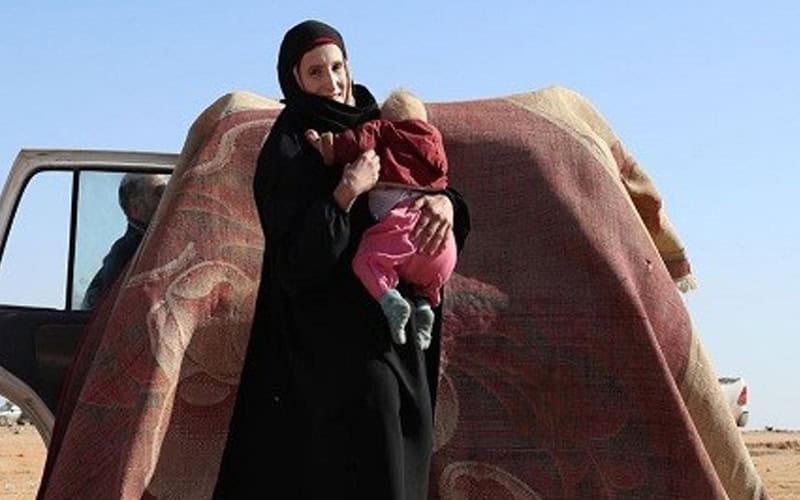Bardarach: “May God avenge us against Trump and Erdogan” is a common refrain among the thousands of Syrian Kurds who have taken refuge in Iraq since Turkey’s assault on their homes.
The numbers, which aid workers say have reached more than 7,500 since Turkish forces and allied militiamen launched the offensive on October 9, is increasing by the hundreds on a daily basis.
They have been crossing to Bardarach inside neighbouring Iraqi Kurdistan to a tent camp previously used to shelter Iraqis fleeing the Islamic State group.
The US-led coalition which backed the Syrian Kurds in defeating IS “has betrayed us and abandoned us”, said a woman from the battleground town of Ras al-Ain on the Turkish border, declining to give her name.
She cursed US President Donald Trump and his Turkish counterpart Recep Tayyip Erdogan “who have caused so much suffering for our people”.
It was Trump’s decision on October 7 to withdraw US troops who had been serving as a buffer against a Turkish attack that cleared the way for the invasion of Kurdish-held northeastern Syria.
Turkey targeted the Kurdish YPG militia, viewed by Ankara as “terrorists” linked to the outlawed Kurdistan Workers’ Party (PKK), and has carved a “safe zone” inside Syria, with Kurdish forces having pulled out.
The offensive killed dozens of civilians, mainly on the Kurdish side, and prompted an exodus of tens of thousands, in the latest humanitarian crisis of Syria’s eight-year civil war.
More than 250 Kurdish fighters were killed in the offensive Ankara dubbed “Operation Peace Spring”.
As US forces were redeploying to a base inside Iraqi Kurdistan on Monday, Kurdish villagers on both sides of the border hurled rotten tomatoes and insults at their armoured vehicles.
The Syrian Kurds, for their part, left behind “bombed-out homes… and many dead lying on the streets” of Ras al-Ain, said the woman from the town that was a primary goal of Turkey’s air and land offensive.
“That tyrant Erdogan must be stopped!” bellowed Mohammed Ali, newly arrived at the camp with his five children from the town of Qamishli, appealing for the United Nations to intervene.
He told AFP that his family had fled the “evil destruction” in Syrian Kurdistan.
Iraqi Kurdish peshmerga fighters have waiting to process arrivals at the informal border crossing of Al-Walid from where they are transferred by bus to the camp in the border province of Dohuk.
Marius Martinelli of medical charity Doctors Without Borders (MSF) said most new arrivals from northeastern Syria, which had kept out of the worst turmoil of the country’s civil war, showed signs of “anxiety and depression”.
After decades of marginalisation, Syria’s Kurds have been building their own institutions in the northeast since 2012 when government forces withdrew.
Another aid group, the Norwegian Refugee Council, said the number of cross-border refugees could climb as high as 50,000.
More than 160,000 people have been forced to flee their homes since Turkey launched its offensive, according to UN estimates.

